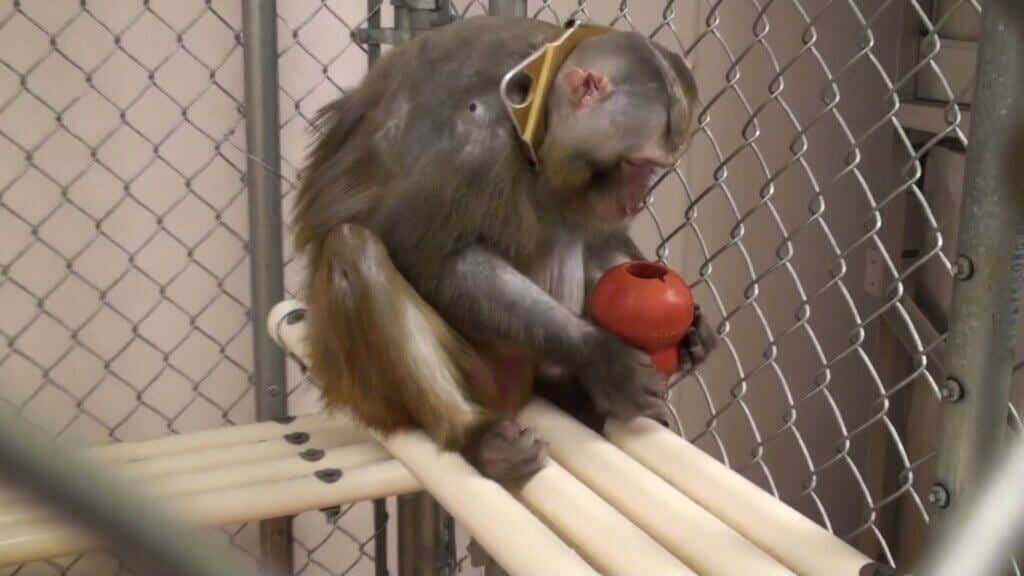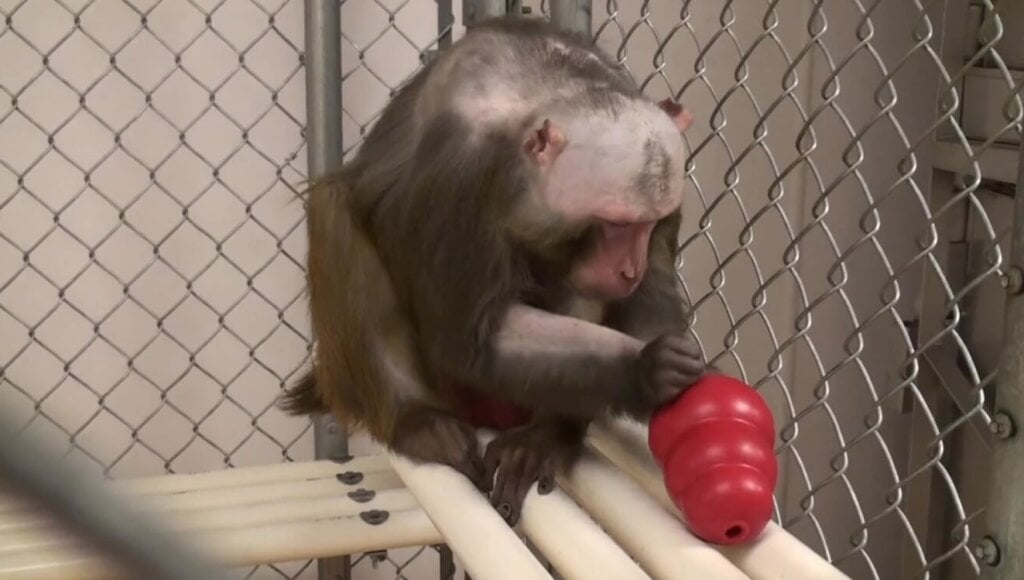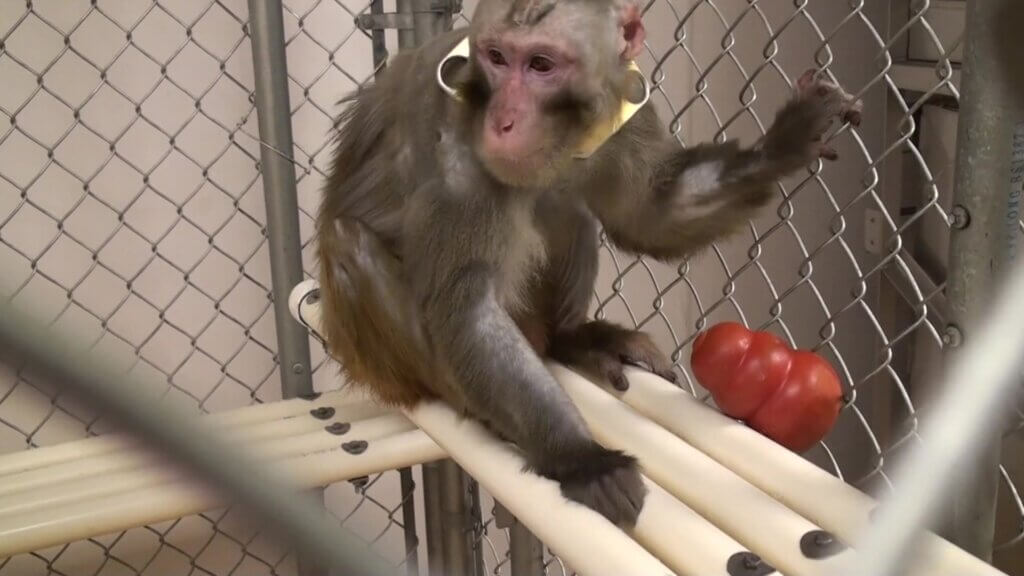California National Primate Research Center at the University of California–Davis
Babies who are torn away from their mothers. Monkeys who escaped from cages and died from head trauma. This is just business as usual at the school’s California National Primate Research Center.
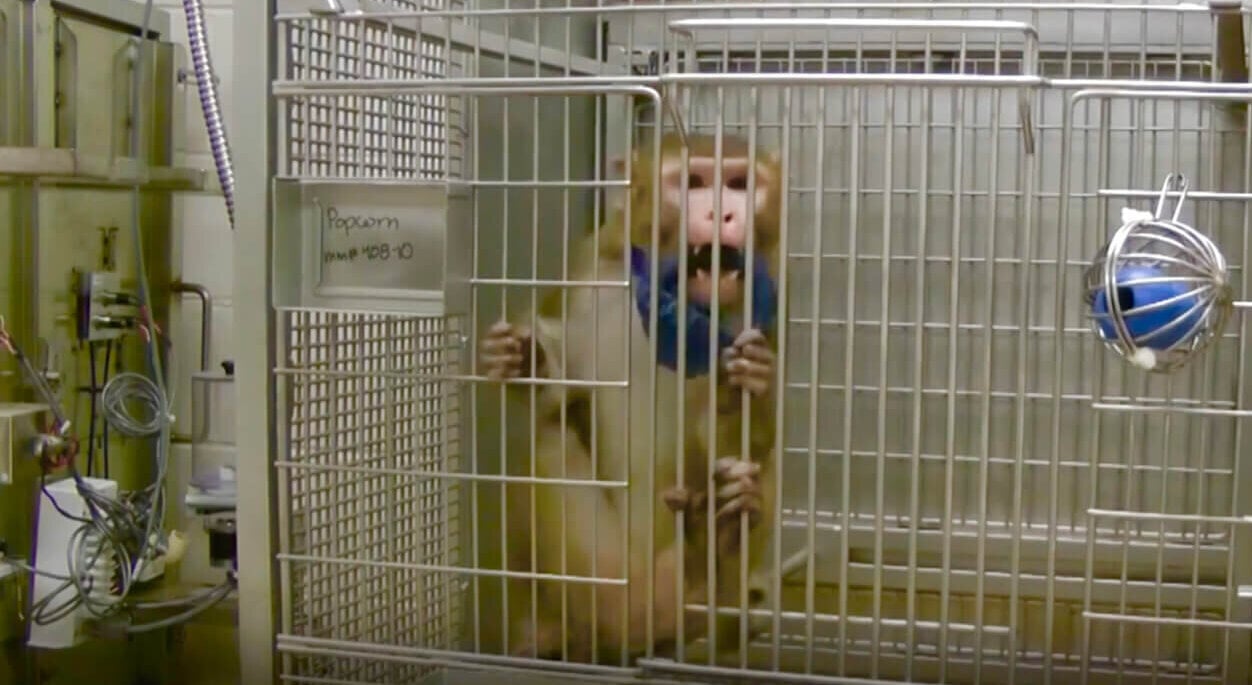
The California National Primate Research Center (CNPRC) is one of seven so-called “flagship primate centers” established and funded by the federal National Institutes of Health (NIH) and one of the largest primate laboratories in the world. Located in Davis, California, the CNPRC is affiliated with the University of California–Davis, which used 2,424 primates in experiments in 2022. Nearly all of them were either rhesus macaques or crab-eating macaques, although the laboratory also confines New World titi monkeys. An additional 2,766 primates were imprisoned at the facility for other purposes, including breeding. In fiscal year 2022, UC-Davis received more than $330 million from NIH, including a $15.4 million base grant specifically to maintain the CNPRC.
On episode 211 of The PETA Podcast, learn about Elon Musk’s company Neuralink and its cruel and deadly experiments on monkeys performed at the California National Primate Research Center from 2017 to 2020. For more information about Neuralink’s experiments, check out our blog.
Dozens of experimenters, most of whom are UC-Davis faculty, use monkeys at the CNPRC for painful, cruel, dangerous, and worthless experiments.
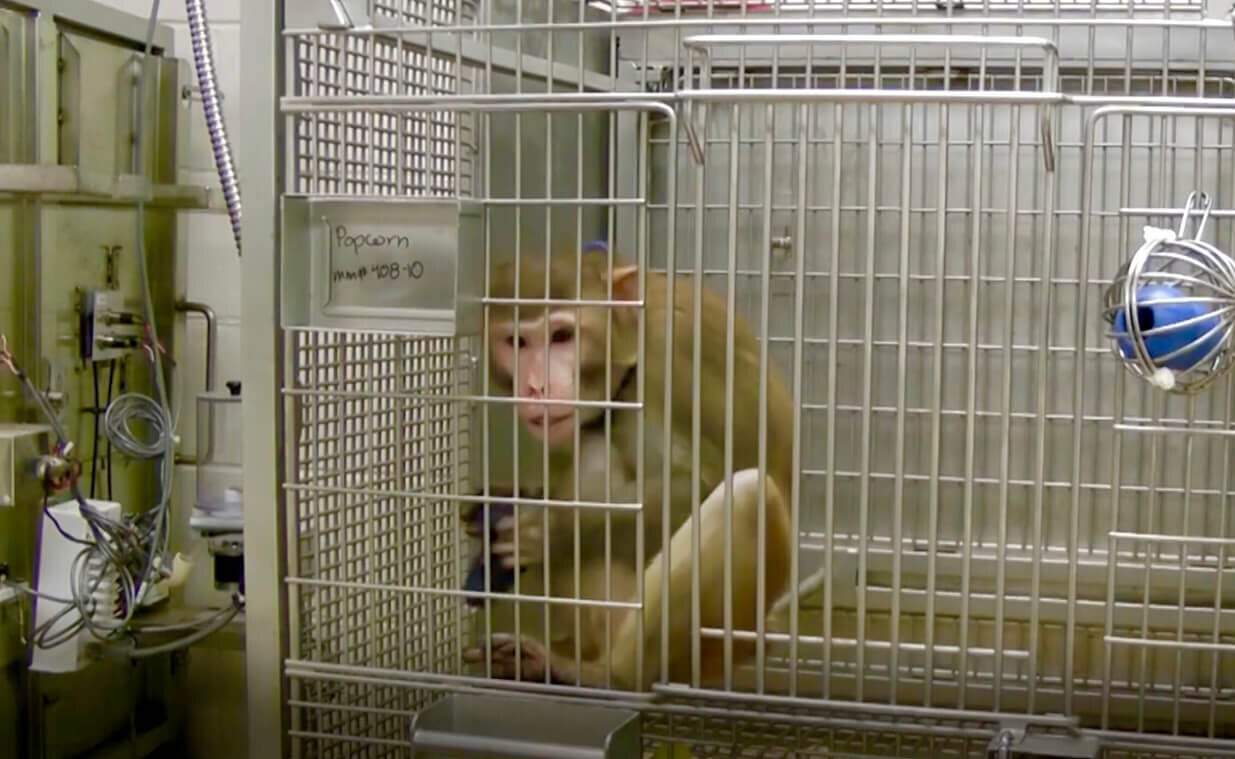
In an experiment irrelevant to humans, experimenters cut open a monkey’s skull, screwed in implants, and later restrained him to watch his brain activity as he reached for bits of food.
The center is the site of an Inhalation Exposure Core, which offers monkeys to experimenters not affiliated with the CNPRC to conduct studies in which these animals are forced to inhale toxic or harmful substances, such as smoke from tobacco and e-cigarette vaping. In a 2018 publication, CNPRC staff discuss an NIH-funded experiment using this inhalation core, in which groups of macaque monkeys were forced to live in a room that was continually filled with tobacco smoke for seven-day periods to study the effects of secondhand smoke on age-related vision loss. The primates were then killed so that their internal organs could be dissected and examined.
These are a few other examples of the types of cruel and worthless experiments that animals have been subjected to at the CNPRC:
- In the laboratory of Ernesto Salegio, experimenters have deliberately inflicted spinal cord injuries on rhesus macaque monkeys.
- For many years, experiments led by John Capitanio have permanently separated baby monkeys from their mothers to study the impact of this early-life stress on the regulation of hormones.
- In experiments funded by a grant to Karen Bales, small titi monkeys were subjected to a series of invasive procedures—removing males from their families, manually restraining them and injecting them with a radio tracer, placing the males in a cage from which they watched their mates interact with a strange male, and then sedated the animals, drew blood from them, and placed them in an MRI scanner—all ostensibly for the purpose of studying jealousy in monogamous animals.
Federal inspection reports describe a den of horrors for primates at the CNPRC.
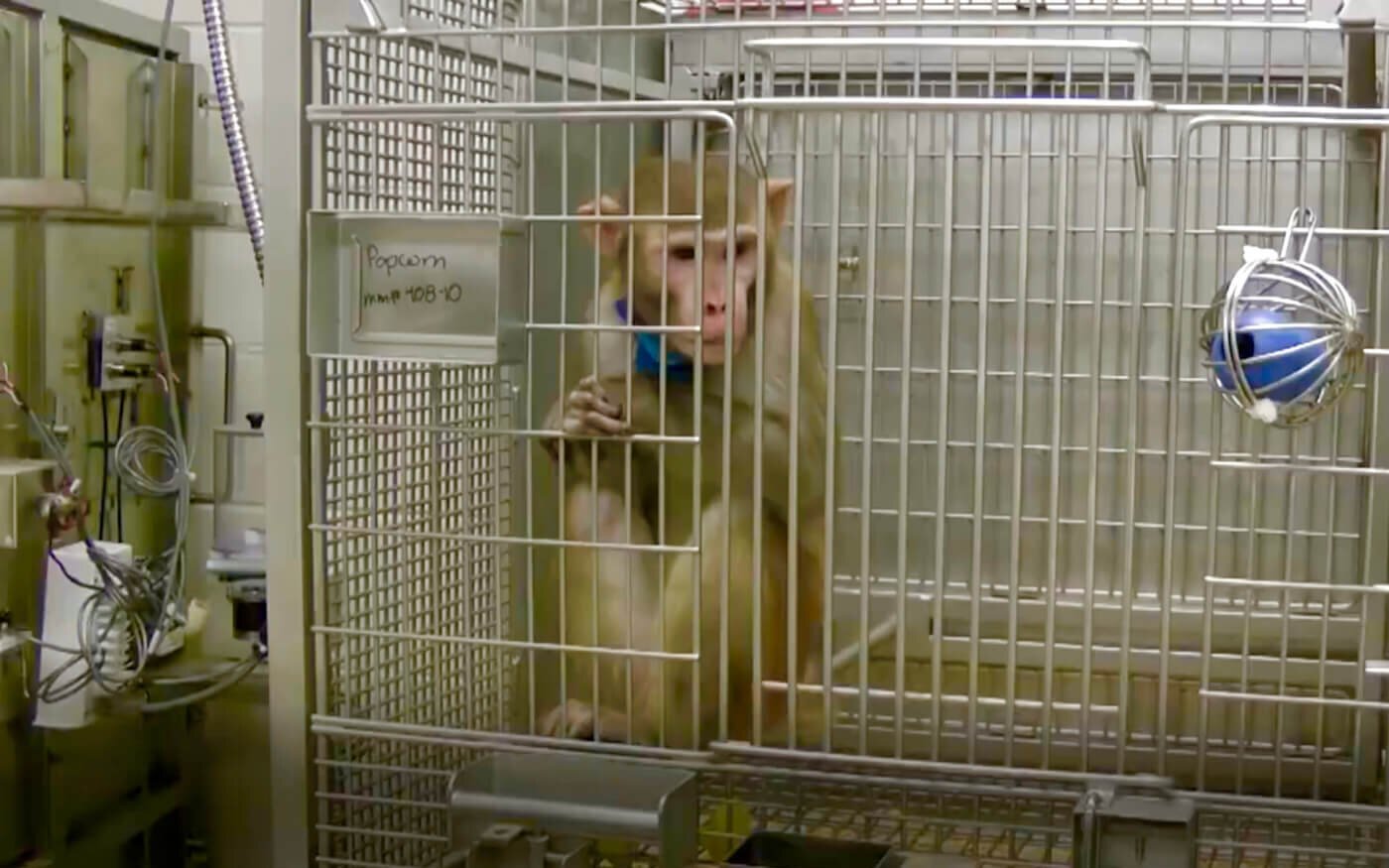
Workers have failed to handle monkeys humanely, resulting in injury and death. Monkeys have escaped from their enclosures because of staff inattention—and died from subsequent injuries. UC-Davis’ Institutional Animal Care and Use Committee—the oversight body intended to serve as the animals’ last line of defense—has repeatedly failed to review proposed experiments adequately, leaving the animals completely vulnerable to incompetence, neglect, and rogue experimenters.
In one incident, a female macaque monkey who had escaped from a transport enclosure was tranquilized with a dart gun and captured—but was found to be in declining health later in the day and had to be euthanized. A pathology report determined that she had suffered from internal bleeding, likely from when she was shot with the dart. In another incident, a juvenile monkey was found dead in an enclosure shared with a second monkey. The young primate was “trapped in the squeeze mechanism built into the primary enclosure and died as a result of trauma to the head and neck.” The school was also cited for individually isolating two infant nonhuman primates instead of allowing them to live together. They were kept alone for approximately four months—a particularly cruel fate for animals so young. No explanation was given in the animals’ records for why they had been housed separately for that extended period.
Brain, Behavior, and Immunity
In this video included in a paper authored by CNPRC experimenters, a distressed infant monkey, the victim of a misguided experiment ostensibly aimed at understanding autism in humans, was separated from his or her mother and paces frantically in a cage.
The unlawful acts of abuse at UC-Davis’ animal laboratories have occasionally resulted in financial penalties, but the paltry fines pale in comparison to the millions of dollars that the university rakes in each year to conduct experiments. In 2018, the U.S. Department of Agriculture fined UC-Davis $5,000 after an improperly anesthetized rabbit died after a pressure valve had been accidently left in the closed position, resulting in a lethal buildup of pressure in the animal’s lungs. And in 2005, the agency fined the university $4,815 after seven rhesus macaque monkeys baked to death in the room where they were caged. A catastrophic malfunction in the HVAC system caused the room temperature to soar to 115 degrees.
